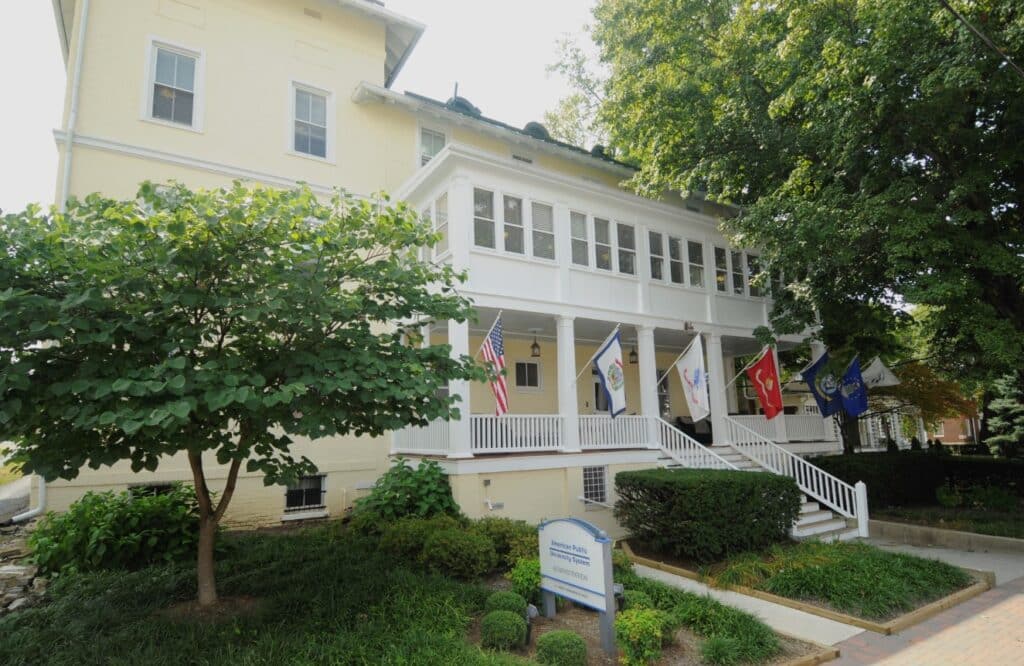By Glynn Cosker
Edge Contributor
American Public University System (APUS) celebrates its 30th anniversary today. APUS was founded as American Military University (AMU) on June 11, 1991.
Since its inception, the University has helped military personnel earn their degrees, and the University has become an innovator and leader in providing quality online education. Today, APUS is one of the largest providers of online higher education – offering more than 200 academic programs to students enrolled worldwide.
Retired Marine Corps Major James P. Etter – a Vietnam War veteran – founded AMU (and became its first president) as a way to help servicemembers further their education and transition out of the military.
APUS 30th Anniversary Panel Event
On June 10th, three of the major players in APUS’s history sat down for a panel event that featured many university faculty and staff, along with dozens of current student Ambassadors.
On the panel were former AMU Vice President of Student Services Frank Ball, the University’s second president Dr. Wallace E. Boston, and its current president Dr. Wade Dyke.
Mr. Ball, explained how he and Major Etter first came up with the concept of a university to serve military students way back in the late 1980s.
“Jim [Etter] and I were both instructors at what’s now called The Expeditionary Warfare School at Quantico [Marine Corps Base],” stated Mr. Ball. “I retired from the Marine Corps in 1989, he retired two years later in 1991 and we started our respective divergent paths.”
The Difficulty for Military Personnel to Earn Degrees
Mr. Ball recollected that – prior to the advent of the internet – it was extremely difficult for military personnel to attain a degree. The time restraints and physical distances made it almost impossible to earn a traditional degree in a suitable timeframe.
“There was no distance learning in those days…So, Jim basically lived 20-plus years of active duty trying to cobble together degrees when the infrastructure of higher education wouldn’t support him…Every bit of AMU and APUS is a function of Jim’s experience.”
‘America Lives On…’
One might also say that a shared love of coffee and donuts played a part in what APUS has become today.
Mr. Ball said, “We met Sunday mornings at the Dunkin’ Donuts in Manassas Park [Virginia] … We spent Sunday mornings working with each other.”
The University’s first headquarters were housed in Manassas Park, Virginia, starting in 1993. Operations officially began with the enrollment of just a handful of students using conventional correspondence instruction.
In 1995, the University conducted its first commencement ceremony in Washington, DC, with just five graduates – compared to the thousands who graduate each year now.
The ‘Big Yellow House’ in Charles Town, West Virginia
Dr. Boston gave the panel a synopsis of the historical significance of the “Big Yellow House” at 111 W. Congress Street. It was acquired as the headquarters of APUS when the University relocated to Charles Town, West Virginia, in 2003.
Dr. Boston said, “It was an office used by one of the early doctors in Charles Town…And in 1904, he decided to start the first hospital in Charles Town.” The yellow house was a busy hospital from that year until the early 1950s when it became a nursing home. It remained a nursing home for the next five decades.

“We gutted the building,” recollected Dr. Boston. “We renovated it; Jim Etter was still the president then, and he wanted us to try to keep the building as historic as possible.
“For example, the Office of the President was – for a very long time – the operating room for the [original] hospital, so it had massive windows because as the last surgeon in town, who was alive, who operated in there told me, the lights they had were oil-based lights and they weren’t very good to see during a surgery, and so that’s why they had all these windows.”
APUS Achieves Regional Accreditation
Dr. Boston, who took over from Major Etter in 2004 as the University’s second president, told the panel that gaining regional accreditation was one of his first priorities. APUS fulfilled Dr. Boston’s goal by achieving regional accreditation with the Higher Learning Commission (HLC) in 2006.
Some other highlights of Dr. Boston’s presidency include APUS’s parent company (APEI) becoming a publicly traded company on the Nasdaq stock market in 2007.
In 2010, APUS opened its 45,000-square-foot Academic Center, which would later receive LEED Gold-Level Certification. It ushered in a new era of climate neutrality by converting a former “brownfield” site into a cleaner environment for Charles Town.
‘The Legacy of Building Around the Needs of the Students’
The University’s current president, Dr. Wade Dyke, offered his thoughts to the audience on the first 30 years of APUS.
“What people are most impressed about is [the University’s] legacy of building around the needs of the students…It’s very unique in higher education…our institution was purpose-built to say, ‘We understand your needs and we’re going to address them in a way that that works for you’ and so that’s the great legacy of the institution. And I think a lot of institutions now are waking up to that fact — that you really have to be purpose-built around what the needs of the students are.”
Looking to the future, Dr. Wade offered up some of the initiatives that are currently under consideration for the University.
He says, “We love our [business] model. We love what we do. I think the notion of shorter courses – stackable toward a degree – is something that’s coming.”
The panel event ended with a Q&A session between the students and the panelists, along with a trivia contest on APUS history.

Comments are closed.